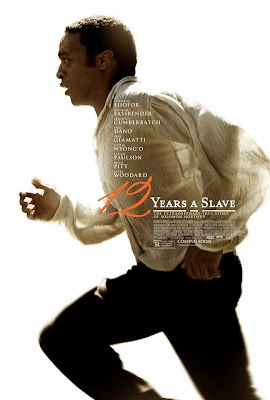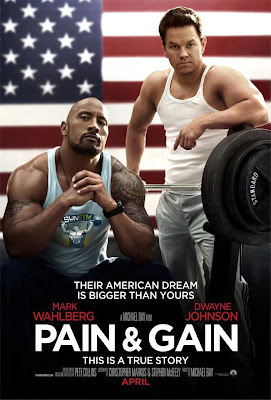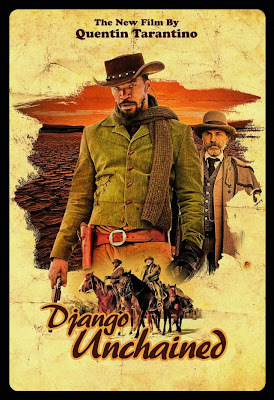‘12 Years A Slave,’ A Powerful Memoir Skillfully Brought To Life
Solomon
Northrup: My name is Solomon
Northrup. I am a free man and you have
no right whatsoever to detain me.
It can be a challenge
to express why certain dramas work on a viewer more than others. A film like 12 Years A Slave, which is based on the true life chronicle of man
kidnapped and forced into slavery, could function on a level that dwells purely
on misery and offers little beyond sadness for the viewer to walk away with,
but it is much more effective than that.
12 Years A Slave is a truly
gripping story that most certainly serves as an unflinching look at a horrible
period of a man’s life, within a time period where injustice against man may have
been at its peak in America, but does so with a mood that seems to distinguish
itself from other period dramas. It may
have to do with the filmmakers behind this feature, the emotional rawness of
the performances, or other factors, but the film sets a high-water mark for torturous
odysseys portrayed on film, such as this, set during an awful time like
slavery.
The story begins in
1841, in Saratoga Springs, New York, where we meet Solomon Northrup (Chiwetel Ejiofor). From the beginning we know that Solomon is a
free-born black man, who has spent his life learning proper instruction, which
includes skills as a carpenter and a fiddler.
He lives with his family, a wife and three children. One day Solomon accepts an invitation from
men he believes to be entertainers, under the pretenses that he can make some
extra money performing as a fiddler in some of their performances. Solomon heads to Washington D.C., without the
knowledge of his wife, where he soon realizes that he has been tricked. The two men have in fact kidnapped Solomon
and promptly sell him into slavery. From
here, Solomon is shipped over to Louisiana, where he then spends a large
portion of his life working as a slave in various plantations.
Screenwriter John
Ridley has adapted this story from the bestselling memoir written by Solomon
Northrup, following his unfortunate and lengthy experience. While there are a few minor details altered
or left out entirely, the construction of this story deserves lots of credit
with how brutally honest the portrayal of this man’s life is. It is not that the film is lacking in
restraint, but more so that it does very little to lighten up the details of a
story like this, in favor of grounding the film in complete reality. Much of this equally comes from director
Steve McQueen, the British director who has previously made the acclaimed
features Hunger and Shame.
While I will have more to say about his work soon, I will say now that
it was interesting for me, going into my screening of this film, how a black
man from somewhere other than America would handle this type of subject matter.
Getting back to Ridley,
a black screenwriter from America, regardless of how his screenplay work
matches up to the original text, it is interesting to see how he formulated the
various characters Solomon deals with throughout. It is easy for us now to look back upon
slavery and think about the concept with such disdain, but Ridley’s script allows
for abhorrent slave owners to reveal complexities about themselves, in addition
to those who are obviously more sympathetic, but at the same time hypocritical
in their actions. A number of these interesting
touches are present throughout the film, which extends to the very setup of
Solomon’s ordeal, where conversations regarding how these men can break free
before it is too late emerge, only to follow up with disastrous turns for some
involved. There is a certain type of
awe, when it comes to watching a well-crafted screenplay be handled with such
elegance, despite the horrific scenarios that are on display, which is why the
direction (and other aspects) feels like a great extension of what was setup
from the earlier writing stage.
McQueen has approached
the film with a certain level of deftness, as he contends with finding the
right way to bring out the drama of this story, without reveling too much in misery. The film is no doubt humorless in its
depictions of slavery and those who were responsible for dealing out pain and
humiliation on others, but it is a film that calls on brutality and makes one
feel the pain, but has other ideas at play as well. As much as John Ridley’s script delves into
different aspects of this story and characters involved, McQueen’s approach to
the material from a directorial standpoint manages to place a large amount of
focus on the process involved in plantation life.
There is little attempt
to have the film wallow in despair with the way his scenes are
constructed. The performances from the
actors do that on their own, in a manner that is all the more effective because
of this directorial stance. Instead,
McQueen is not necessarily trying to find the beauty in the setting, which cinematographer
Sean Bobbitt is able to do with certain locations, let alone some very lengthy
and involved single-shot sequences, but he does distill many scenes down to a
sort of clinical nature. Given that the
look of the film and the characters themselves enhance the story being
presented with complexity, having the simple depiction of actions taking place does
a lot to keep things focused.
In regard to the
performances, there is an ensemble cast present in this film and it is exceptional
work from all. I have been following the
career of Chiwetel Ejiofor for a long time now and watching him take on the
heft of a leading role such as this is fantastic, especially since he puts all
of himself into nearly every scene in this film. Alongside Ejiofor is Michael Fassbender,
another actor who is currently at the top of my list, when it comes to admiring
actors who give it their all, every time out.
Fassbender plays the cruel plantation owner Edwin Epps, a figure still
known in real life to this day for his malice.
In addition to his treatment of slaves, Epps contends with his
fascination on Patsey (Lupita Nyong'o, in a star-making debut performance), the
hard-working, young female slave, who suffers at the hands of Epps and his
equally cruel wife Mary (Sarah Paulson).
Additionally, the film
features Paul Giamatti, Paul Dano, Brad Pitt, Alfre Woodard, Benedict
Cumberbatch, Scoot McNairy, Garret Dillahunt, and Michael K. Williams, which is
pretty much a treasure trove of character actors, who have all clearly signed
on to a very good thing, with regards to the potential quality of this film. As much as it boils down to the strength of
the Ejiofor performance, who should rightfully be a big awards contender this
season (along with Nyong’o), bringing forth this fine ensemble, in addition to
the many other actors and crew involved in this film’s production was a great
success.
All of this and yet 12 Years A Slave does have some minor distractions
that slightly took me away from the experience.
While never feeling long, the film did not quite find the best ways to
signify how much time was passing between various sequences. I was also distracted by the presence of Brad
Pitt, who I normally stick up for as an actor, though maybe remaining just a
producer would have been better this time around. Additionally, Hans Zimmer’s score managed to
feel incredibly effective as the film carried on, but also grew dangerously
close to his own work for Inception,
as his bombastic side emerged in areas best left quieter. I don’t really want to get into the lack of
attention paid to the many sets of great teeth I saw throughout this film as
well, but suffice it to say that with a film so powerful, the minor issues do
stand out a bit more prominently.
Casting these minor squabbles
aside, 12 Years A Slave is one of the
year’s best film and one that will stand as a film others dealing with similar
scenarios will be matched up against.
There is great filmmaking on display here, whether it is in the handling
of the brutality depicted or the subtler moments of struggle. The performances radiate intensity and earn
the gravitas that will be shepherded onto them in the near future. This is the kind of film that deserves the
praise it will be receiving. It was no
doubt difficult to make and while the hardships cannot match what actually
happened in the past, this is a film that feels like a triumph for what it does
accomplish.
Solomon
Northrup: I did as instructed. If there’s something wrong, it’s wrong with
the instruction.
Aaron
is a writer/reviewer for WhySoBlu.com. Follow him on Twitter @AaronsPS3.
He also co-hosts a podcast, Out Now with Aaron and Abe, available via iTunes or at HHWLOD.com.
He also co-hosts a podcast, Out Now with Aaron and Abe, available via iTunes or at HHWLOD.com.














British director Steve McQueen and American screenwriter John Ridley adapt Solomon Northup's meticulous slave narrative into a masterpiece of clear-eyed historical drama.
ReplyDelete